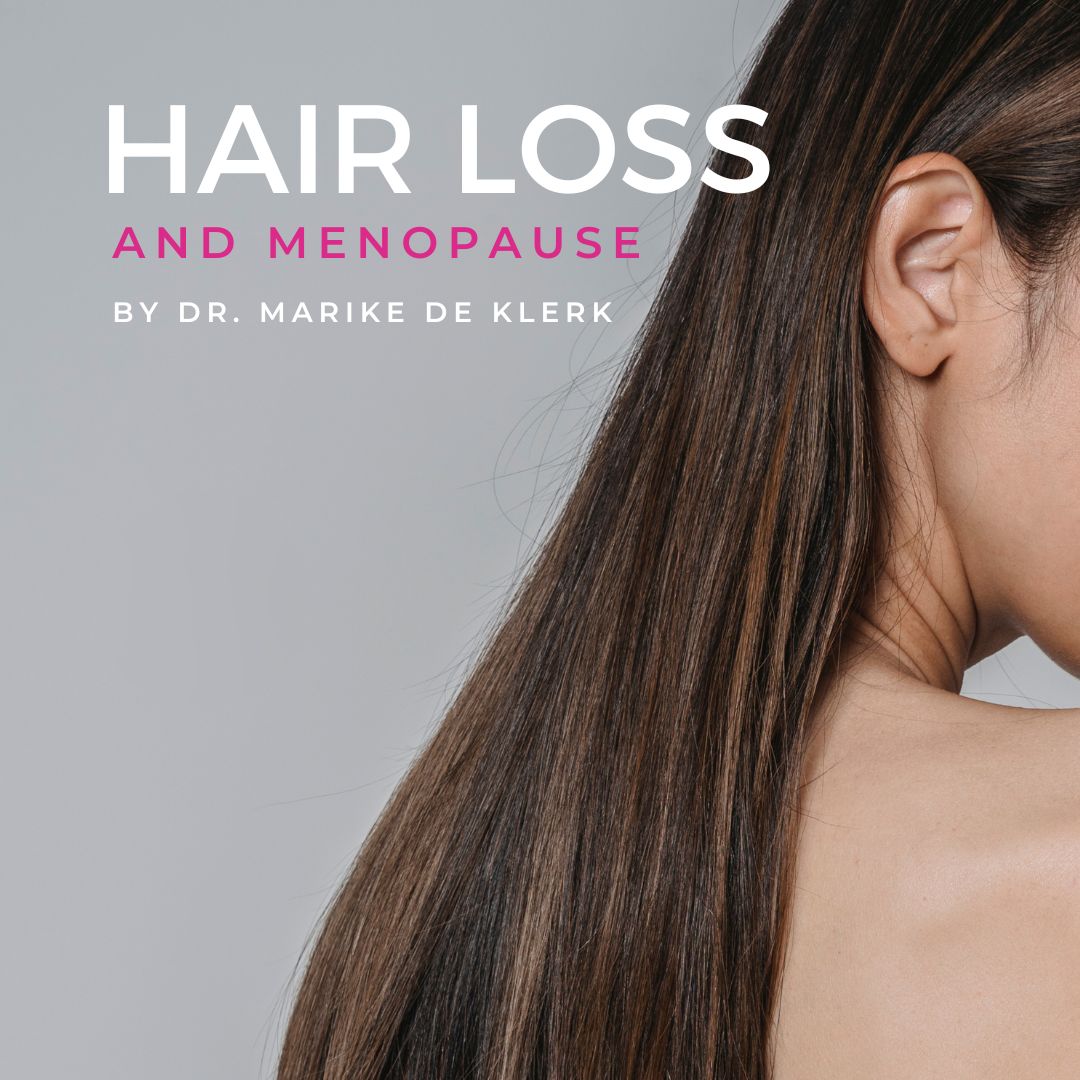|
by Dr. Marike de Klerk
As many as 50 % of women have hair loss in their menopausal years. The type of hair loss in menopause is defined as female pattern hairloss. This occurs when the size of hair follicles decreases, causing hair thinning and fewer hairs on the head. Female pattern hairloss mostly affects the central scalp and can be noticed along the part line, the front hair line, and the sides of the hair. It may also come out in clumps while showering or brushing your hair. In addition to the hair shaft reducing in thickness, the growth phase may be affected and more hair breakage may occur. Female hair loss in menopause has many causes and can include the hormonal influence on hair follicles, genetics, stress, and nutrient deficiencies. Studies suggest that hormone imbalances that occur in menopause, primarily a change in estrogen and progesterone can be to blame. Estrogen and progesterone declines in late perimenopause and into the postmenopausal years and hair growth is slowed. These two hormones are very important for healthy hair growth and without them, the hair can become thin, dry, and break easily. Estrogen is an essential hormone for overall healthy skin. Estrogen helps keep the skin firm, plump, and hydrated. When estrogen levels decline with menopause, it accelerates skin aging and also affects the hair follicles and can contribute to hair loss and thinning. When the body is actively converting estrogen to testosterone during menopause, this reduces the follicle's exposure to androgens. In some cases, the production of androgens or male hormones, including testosterone, can lead to shrinking of the hair follicle and hair loss. When high androgen is the issue, women experience hair loss on the head and can also see hair growth on the chin or upper lip. Progesterone is produced by the ovaries after ovulation, but as ovulation stops, the levels of progesterone decline. Progesterone also blocks the production of excess testosterone and prevent it from being converted into its stronger form, dihydrotestosterone or DHT. DHT is largely responsible for changes to the hair follicle that result in hair loss and thinning. Hypothyroidism and hyperthyroidism can both result in hair loss.The decline in estrogen and progesterone with menopause slows metabolism. It’s common for women to gain some weight in menopause, and an increased weight correlates with female hair loss . Insulin and blood sugar can also play a role in hair loss. It is important to try and identify the reason for this hairloss and adressing it in a effective way.
0 Comments
Leave a Reply. |
AuthorsDr. Marike de Klerk Categories
All
|
All rights reserved Naturopathic Health Care Centre
ADDRESS: No 13 Hazelwood Road, Hazelwood, Pretoria
TELEPHONE: 012 460 9216
PAIA Manua
Website design and digital marketing by Plan Me Pretty (PTY) Ltd
TELEPHONE: 012 460 9216
PAIA Manua
Website design and digital marketing by Plan Me Pretty (PTY) Ltd


 RSS Feed
RSS Feed